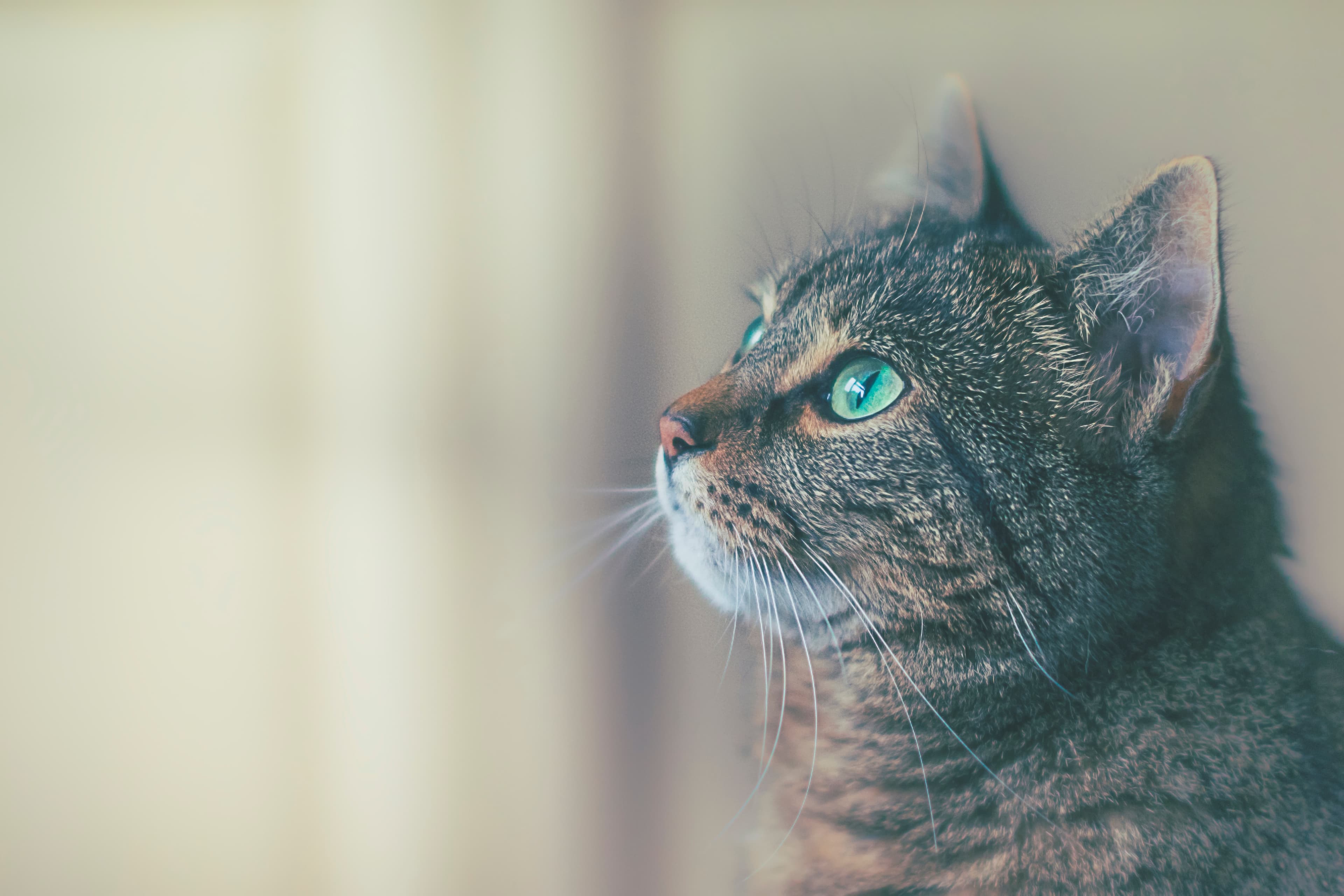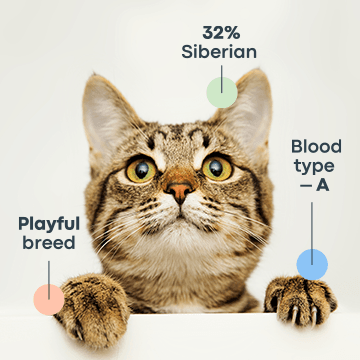Cats have been with us since time immemorial. The expression of the cat's face is not as expressive as that of a dog, so the owners want to know what their pet is thinking at the moment and whether he is thinking at all.
How Do Cats Think?
If you put a piece of gold jewelry, a bit of fish or meat, and a rubber ball in front of the cat, then preference will be given to one of the last two things. The cat makes a choice based on its feelings. If the animal is hungry, it will choose food; if it is fed and not opposed to having fun, he will prefer the ball. The cat will remain predictably indifferent to gold, jewelry, and other status things. All this does not interest him since such things are the subject of a people's society who live by different rules.
Cats have straightforward thoughts - eating, sleeping, reproducing, and satisfying curiosity and affection cravings. When cats sit and think about something it may be one of those things.
Cats sincerely become attached to their owner and learn to read their emotions. If the owner is not in a good mood, sick or tired, the cat will jump into his arms, purr, and caress. A person does not even notice how fatigue passes, the pain recedes, and the evening with your beloved pet becomes comfortable and joyful.

Studies About Cat Cognition
Let's make a reservation right away; scientists still need to study the thought process of a cat comprehensively.
One thing is known: to survive, wild animals are forced to think through all possible scenarios and remember where danger awaits them. They generalize their experience and conclude it thanks to their memories. For example, if a pet recalls that a specific action provokes unpleasant sensations, he will try not to repeat it, avoiding discomfort and stress.
Abstract thinking in cats is absent - for this, they do not have the necessary part of the cerebral cortex - and they cannot analyze their actions (as, for example, people do). They do not know how to reason about what happened; they only have simple connections.
In addition, the cat's thinking associates some events with significant stimuli for her. For example, if she sees a toy, her brain hyperlinks to the past and opens up a memory of the game. However, the cat will not remember the toy in boring evenings.
Scientists believe that complex instincts drive cat behavior. In the wild, survival is impossible if you do not think through every step you take. Cats are predators, so they need to be prepared for anything - for a sudden attack by a larger animal, changes in natural conditions, and the emergence of competitors for resources on your territory.
Complex instincts are the forerunners of the emergence of the mind and consciousness as we know it. Do cats think? Of course, they do! But often, the owners attribute to them not the thoughts that bother mustachioed pets in reality.
Maybe cats dream
Veterinarians suggest that cats most likely can dream and remember dreams. During certain sleep phases, they can make uncontrolled movements of the muzzle, mustache, paws, and even the stomach. Perhaps they may have nightmares, although science has not yet found an exact confirmation of this.

Cats can remember a lot
Researchers from Japan 2016 experimentally discovered that cats have a memory. The experience consisted of several stages. In the first, they placed four bowls in front of 58 pets: two contained food, one included an inedible item, and another was empty. Scientists arranged it so that cats could only eat from one. Fifteen minutes later, the scientists gave the cats the same four bowls, but they were all empty this time.
The results showed that the cats explored the one bowl where the food remained untouched in the first round more often and longer, as they "remembered" that they did not get to it in the first place. The researchers speculated that they might have simple "memories" in this way. According to the lead author of the study Saho Takagi, this explains why pets may fear going to the veterinarian: their fear is associated with past experiences. In this regard, it is imperative to make each visit to the doctor calm and pleasant for the cat, not hoping that he will forget about everything.

Can cats think about the future?
A cat dreaming about its favorite food is fiction. Cats can't imagine what isn't there. They can be said to be realists, which is why they are so hard on moving, trips to the veterinarian, changing food, and any other "future."
Cats live in the present, not the future. However, they still know how to predict a little: by receiving a particular stimulus in the past, the cat will be guided by it in the future. For example, a carrier can remind a cat of an unpleasant visit to the veterinarian - so it turns into a hyperlink to the fear of the veterinarian: the cat already knows what awaits her in the near future. So, it's time to start being afraid.

What Does Your Cat Think About You?
Every cat owner was puzzled about the question “what do cats think about humans”. For cats, their owners are big cats. So says John Bradshaw, doctor, behaviorist, and author of Cat Sense, a book at the University of Bristol. According to John's research, cats do not change their behavior pattern regardless of who is in front of them: another cat or a person. So cats think about their owners as a strange part of their feline family. Also, according to Bradshaw, cats think they can control their owners with purrs and milk walks, for example, and spend a lot of time learning them and remembering all the behavioral patterns.

Cat Facial Expression and Body Language
The cat's tail is a marker by which an experienced owner can quickly determine what emotions his pet is currently experiencing. If the cat wants attention or food, its tail is bent, like a question mark. If the animal is irritated, the tail becomes straight, and its tip jerks sharply from side to side. A stick-hard tail that the cat swings from side to side indicate that the animal is frightened, under severe stress, and can now attack.
The muzzle of cats can also signal what feelings the animal is experiencing and what he is thinking about. Half-closed eyes and relaxed ears indicate that the cat is calm, set to play with the owner, or sleep. Constricted pupils that become vertical, bulging mustaches, and ears pressed to the head are signs of aggression. It means the cat is uncomfortable, irritated, and can scratch or bite. Purring cats express their sympathy for the owner and the joy of meeting him. This is how the animal shows how pleased he is with your company.
Conclusion
In conclusion, we can assume that question "what do cats think about all day" has multiple answers. Primarily as we found out, cats think about their needs as hunger, thirst, need for love and attention, and desire for playing and sleeping. Cats are pretty straightforward in their thinking process, but still, they have memory, and they, like us, have dreams. Cat's mind is still a mystery.
Frequently Asked Questions
What do cats think about? Cats are known for their curiosity, independence, and hunting instincts, so their thoughts likely revolve around exploring their environment, stalking prey, and finding cozy places to rest. They may also consider social interactions with other cats and humans, such as grooming, playing, and seeking affection.
Cats have excellent memories and can learn from experience, so they may also think about past events or anticipate future ones. For example, a cat might remember where he found a tasty treat and return to the same spot to search for more.
What do cats think about humans?
Cats have complex relationships with humans, and what they think about us likely varies depending on the individual cat and their experiences with people. In general, cats may view their humans as food, affection, and comfort sources. They may also perceive us as potential playmates or sources of entertainment, especially if we engage in interactive play with them.
Some cats may develop strong bonds with their human companions and seek out their company for comfort and security. Others may be more independent and prefer interacting with humans on their terms.
It's also possible that cats view humans as somewhat mysterious or unpredictable beings, as we communicate in different ways. However, cats are capable of recognizing human emotions and expressions, suggesting that they may have some understanding of our moods and intentions.
What cats think about humans is likely a complex and varied mix of perceptions based on their experiences and personalities.





